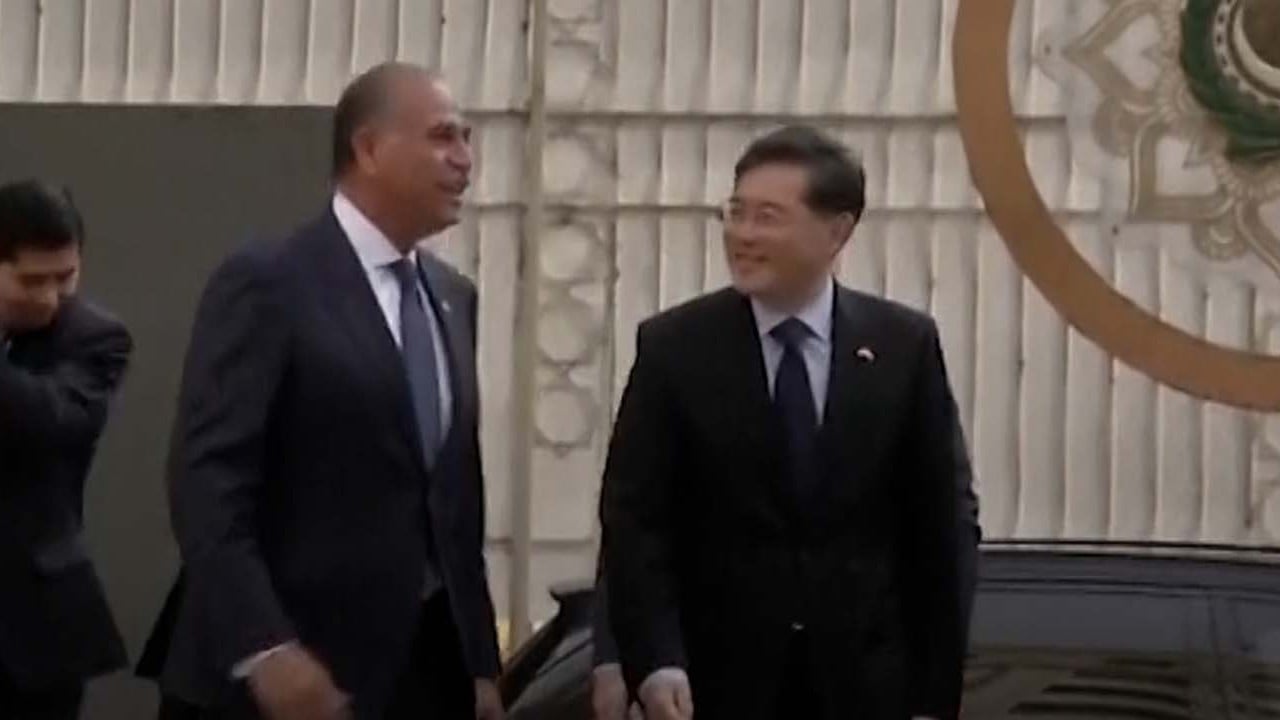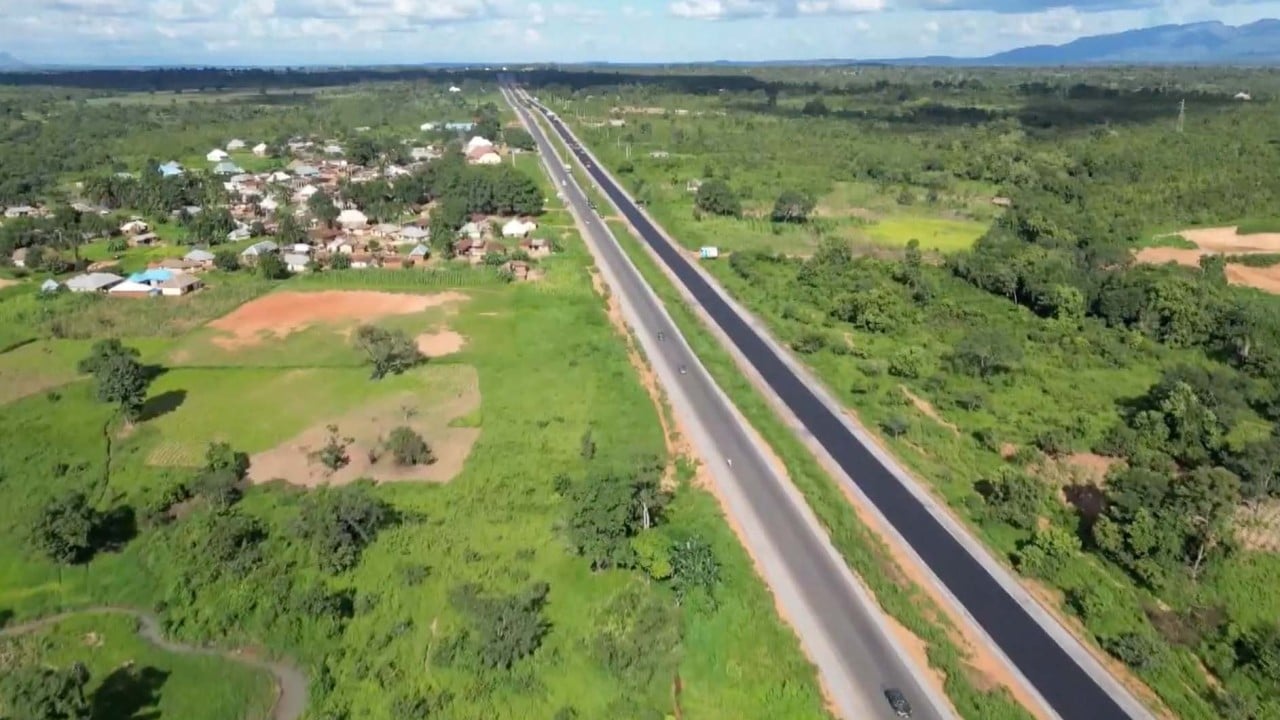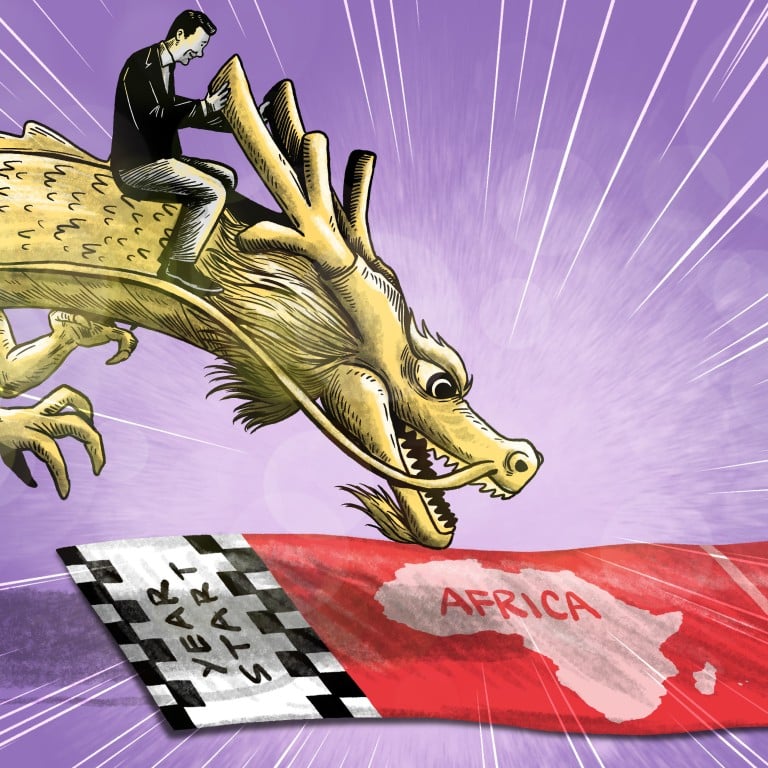
Why – after more than 3 decades – China’s foreign minister still starts the year with a trip to Africa
- The timing of the trips has remained consistent but their purpose has shifted since Qian Qichen started the convention in 1991
- Sending top diplomat to stop first in African nations each year says much about Beijing’s ambitions and Africa’s place on world stage, say analysts
When Qian Qichen, then China’s foreign minister, visited Ethiopia, Uganda, Kenya and Tanzania in January 1991, he set the ball rolling for what Chinese state media called an “unstoppable trend”.
Observers have viewed the preservation of the decades-long tradition as a diplomatic tool and China’s way of showing that Africa is consistently at the top of its diplomatic agenda – and likely to remain that way for years to come.
However, China’s engagement with the region has not always stayed the same. Instead, analysts said it had shifted from one that mainly centred on trade to focusing on Beijing’s efforts to expand its influence around the world.
Lina Benabdallah, professor of politics and international affairs at Wake Forest University, said one of the most appealing aspects was “precisely the continuity and the track record of the tradition”.
“This has established a narrative of stability and of continuous prioritising of China-Africa relations.”
And from Wang’s recent regional swing, it appears China’s consistency is paying off.
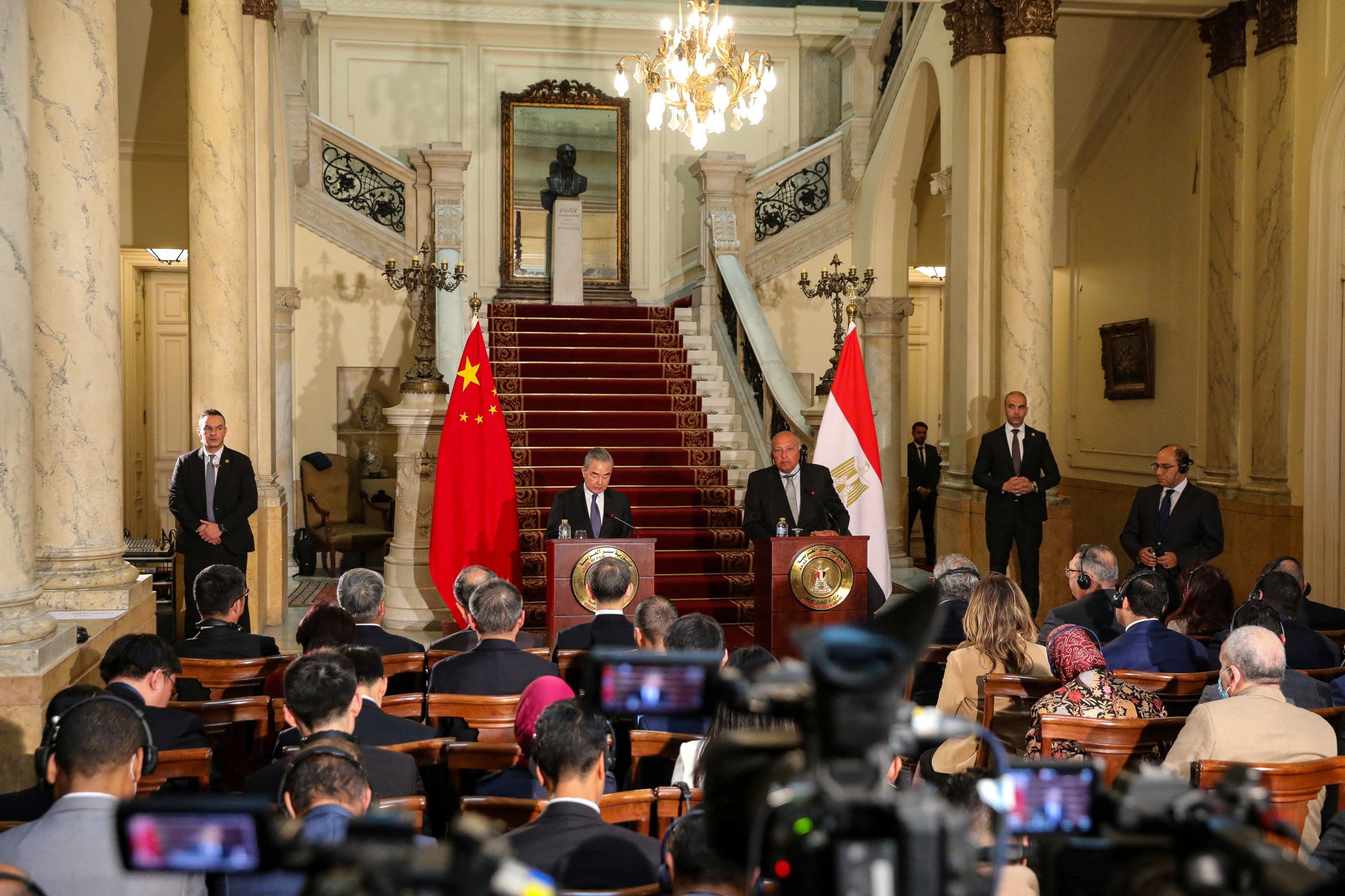
Egyptian Foreign Minister Sameh Shoukry said it was a “great pleasure” that his country was the first leg of the Chinese envoy’s Africa tour, a move he said showed the “solid and profound friendship” between the two countries.
In Togo, Foreign Minister Robert Dussey said Wang’s trip was of “special significance”, and that the West African nation “highly appreciates” Beijing’s tradition of sending its foreign minister to visit Africa at the start of each year.
Togo’s President Faure Gnassingbe, in a separate meeting with Wang, said: “The African people need a friend like China, who takes care of Africa’s realities, listens to Africa’s demands, and never imposes its will on others.”
According to Alessandro Arduino, an affiliate lecturer at the Lau China Institute at King’s College London, Africa “has been and still is a top priority for China”.
But he noted that China’s interactions with the continent had had a “more ideological focus” in the past. Now, its approach was a “strategic blend of geoeconomic pragmatism and Beijing’s ambition to lead the Global South narrative”.
Why Chinese bitcoin miners are flocking to Ethiopia
China – which classifies itself as a developing giant – has in recent years sought to cast itself as a champion and leader of developing countries and the so-called Global South.
“Over the past decade, China has worked strategically to position itself not only as an economic powerhouse but also as a security player in the region, evident in increased military and police force training provided to various African nations, as well as peacekeeping missions and security equipment transfers,” Arduino said.
On the security front, China has been increasingly involved with peacekeeping, counterterrorism and anti-piracy efforts and other measures, given its extensive investments in the region.
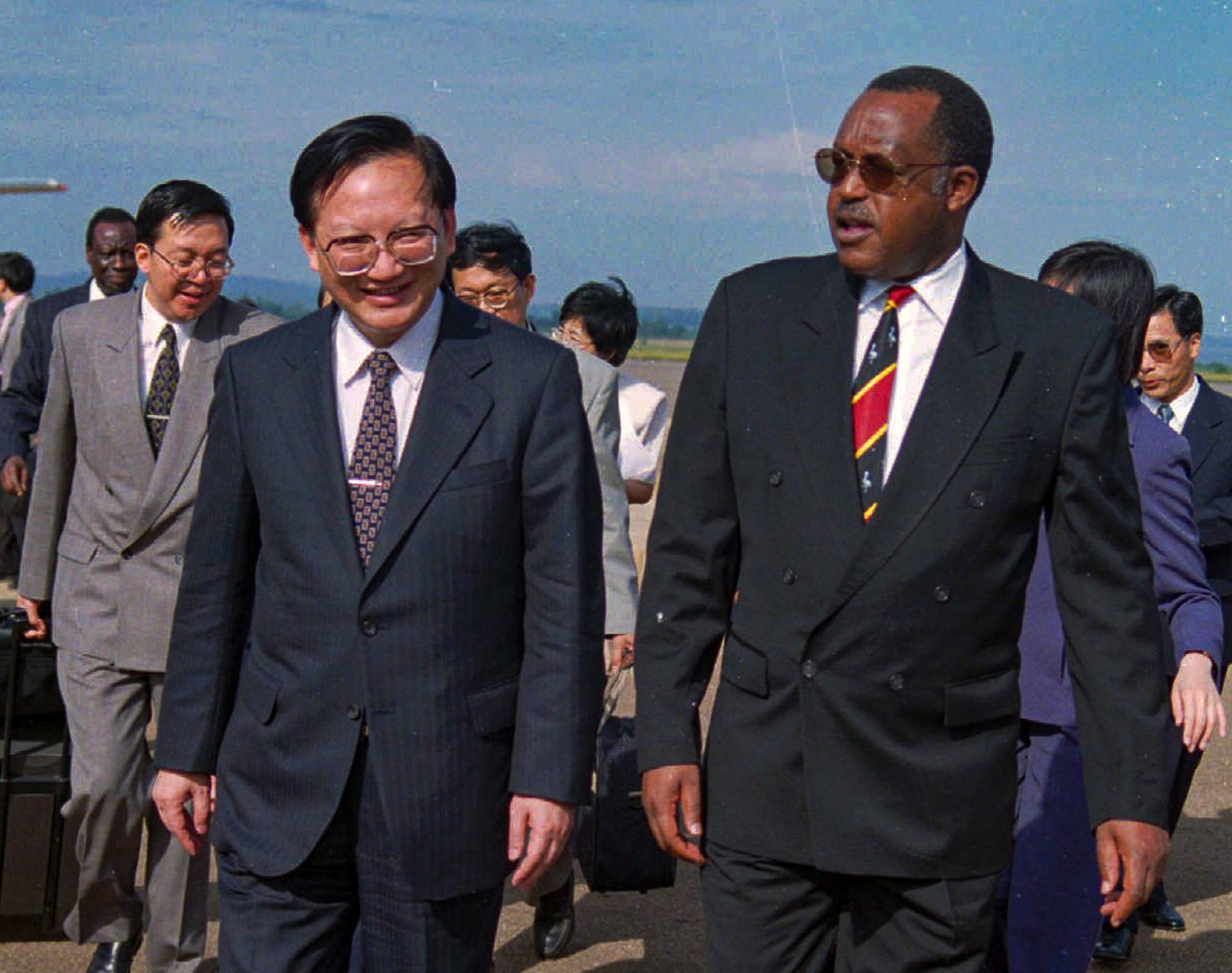
Mandira Bagwandeen, a lecturer in political science at Stellenbosch University in South Africa, said China’s ties with the continent had evolved into a “multifaceted and dynamic relationship” since 1991 when Qian kicked off the yearly tradition.
The ties, she noted, had initially been built on securing and maintaining a political alliance following the 1989 Tiananmen Square protests and subsequent crackdown that resulted in China being shunned by most of the international community.
Africa – rich in natural resources such as oil and critical minerals – then became a key resource supplier for China’s burgeoning economy in the early 2000s, after China launched its Go Out policy to promote Chinese investments abroad.
“Political relations are still important, especially in the light of the current geopolitical climate. However, economic ties have grown from strength to strength over the years,” Bagwandeen said. “Africa is not just a simple resource supplier to China any more but a region of strategic importance.”
While resource interests would remain a mainstay for China’s engagements with the region, Bagwandeen said Beijing’s interest in playing a role in Africa’s industrialisation had added a new strategic-economic angle to the relationship.
She said the elevation of relations with Africa to a “comprehensive strategic partnership” in 2015 indicated Beijing’s desire to deepen ties with the region on all fronts, from political to economic to security.
Benabdallah from Wake Forest University similarly noted that China needed “diplomatic support” on the international stage when it started the tradition to woo Africa in 1991. At that time, China also needed markets for its goods and raw materials for its production capacity.
While the degree of China’s needs might have changed slightly, Benabdallah said it was not likely that Beijing would walk away from Africa – especially against the backdrop of a heated geopolitical rivalry with Washington and Europe over influence in Africa.
“I don’t think we will see this tradition going away soon because the Chinese side recognises that it is very much appreciated by the African sides,” she said.
“As such, these visits are an important asset in the diplomatic toolbox of China’s foreign policymaking in Africa.”
Bagwandeen said China’s diplomatic tradition of keeping Africa as the first destination of its top envoy’s visit was significant for optics, particularly the way China would be perceived by African officials and in the wider Global South.
“China’s foreign minister’s first visit of the year to Africa showcases China’s continued commitment to deepening diplomatic engagement and cooperation with the region,” she said.
“The tradition showcases to the African audience and international community that China views Africa as a significant region in its foreign policy calculations.”
China investors eye Africa’s Mauritius as it goes green, tries to sweeten deals
She said most trips made by Chinese foreign ministers in the past appeared to strike a geographical balance, covering every African region. But in recent years there seemed to be greater emphasis on West Africa, evident in Wang’s visits to Togo and Ivory Coast last month.
China’s prioritisation of West Africa could be related to the development of its Belt and Road Initiative, under which Beijing has committed to port projects in the region.
Bagwandeen suggested it also showed the increasing importance of West Africa to China’s geopolitical-economic calculation.
“Given strained relations with the French in the region, it’s an opportunity for China to strengthen ties, gain more influence, and expand its development-security approach,” she said, referring to the growing unhappiness among West African states over France’s influence in the region.
US is ‘all in’ for Africa, Antony Blinken says opening coastal tour
Bagwandeen said the geopolitical and strategic importance of Africa would only grow – especially when China faced increasing competition from the West and other powers that sought to strengthen relations with the region.
China, she suggested, was also aware of Africa’s influence in international institutions such as the United Nations, and it needed to ensure it had the support of the African vote when needed.
“So [China] will want to maintain and strengthen ties with the region and show that it really values relations with Africa,” Bagwandeen said.
“By prioritising the region as the year’s first visit shows Africans that China places immense importance on its ties with the region.”


